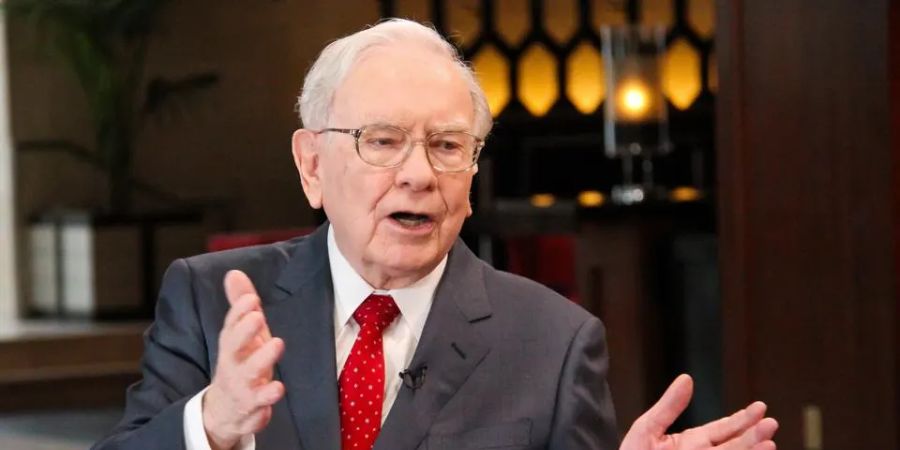At some point, every major corporation will leave a trail of their decisions pointing to the future long before the official announcement comes. Berkshire Hathaway was one of those companies; in fact, it reached that point during the quarter that ended on September 30. This period drew attention in the context of the Berkshire third quarter filing and the wider Warren Buffett investment news cycle.
At a time when Warren Buffett will be closing the chapter of his leadership at the firm by the end of this year, the company made a surprising move for those who had been following the company for long. It gradually got hold of a big stake in Alphabet, signaling a major Berkshire Hathaway Alphabet stake. The announcement was made late Friday, and it attracted much attention than usual because Berkshire had kept away from Alphabet for a long time. This move also fed into curiosity around Why Berkshire invested in Alphabet.
Buffett had always been a fan of companies that have large, strong, and long-lasting competitive advantages, but he never took the risk of investing in the Google parent company or YouTube. He rather went for other tech giants like Apple and Amazon. This manner of operating had defined Berkshire’s identity for more than ten years and hence this trade feels like more than just a trade. Many analysts connected the timing to the Warren Buffett succession era, sparking discussion about Tech stocks in Buffett’s portfolio.
A New Stake That Says A Lot
Berkshire at the end of the third quarter was still in possession of nearly 18 million shares of Alphabet, marking a clear Alphabet share purchase and a noteworthy Alphabet stock investment. The amount they spent on the shares was approximately 4.3 billion dollars. The closing price per share on Friday was about 5 billion dollars. So, Berkshire did not only sell to tech giants but came in with strong faith. This became one of the more surprising Berkshire tech investments in recent years and contributed to broader interest in Berkshire Hathaway portfolio changes 2024.
Alphabet has had a turbulent year. The stock more than doubled and reached a 50 percent increase this year, but then faced massive declines during February and March. A turnaround was brought about when the company won a significant battle in an antitrust case against its Chrome browser. This was linked to the larger Chrome antitrust case, which influenced Q3 stock market trends. The result was much better than what the market had anticipated and thus the stock increased. September saw an increase of 14 percent, October of 16 percent. Berkshire came in at a time when the market was regaining its trust, reflecting a clear reading of Alphabet stock performance and the Impact of antitrust case on Alphabet stock.
Reading Into the Filing
Big investors are obliged to submit quarterly reports known as 13-Fs. The entire inventory of stocks and ETFs owned by these companies is accessible to anyone. This is one of the rare occasions when one can get an idea of the company’s inner thoughts, for example, Berkshire’s. This information becomes central to the Berkshire Hathaway 13F report, which often reveals the firm’s direction.
In the plus side, the main news was about Alphabet. However, the other transactions of Berkshire revealed its usual conservative attitude and were in line with the company’s steady and prudent approach.
Classic Berkshire Decisions
In addition to the new Alphabet investment, Berkshire Hathaway increased its holdings in some of its long-term favorites. Among these were an increase of 13 percent in shares of Domino’s Pizza, sparking interest in Domino’s Pizza Berkshire investment, and a rise of almost 16 percent in the case of Chubb, which is one of the very large insurance firms, tying into Chubb Berkshire holdings. These decisions appeared to be almost predictable and thus, like a counterbalancing force to the Alphabet shock, they had a stabilizing effect.
There was one unmistakable exit. Berkshire’s withdrawal from the home builder D.R. Horton was complete. The reason for the move was not disclosed as usual but the choice was in line with the company’s strategy of pulling back from the areas it considers to be losing momentum or experiencing price pressure. Many analysts see this as part of the broader Berkshire investment strategy after Buffett.
The Bigger Picture Behind the Quarter
Berkshire had revealed its third quarter results a week earlier than this. The statistics presented a rising mound of cash, indicating patience and discipline. The firm remained prudent with regard to stock repurchases, the preference of liquidity over buying back shares aggressively. Such a decision is generally interpreted as walking the line, a readiness to wait for the right moment rather than go after the wrong one. This financial posture also connected closely to Berkshire Q3 earnings.
What This Moment Represents
With the termination of Buffett’s leadership period, every move made is very significant. The new investment in Alphabet displays a firm that is willing to grow while staying rooted. It indicates an opening to the future while at the same time firmly gripping the values that have made Berkshire a powerful multinational company. Alphabet, as the Google parent company, now plays a much bigger role in the narrative than ever before.
The conclusion is straightforward. Berkshire is getting ready for its next era with somewhat unexpected actions along with the usual consistent ones. Alphabet is the daring step. The rest of the investments are the equilibrium. And they all together portray a company that is still keeping the long term perspective, still being flexible, and still quietly influencing the market the way it wants. This also closes the chapter with a strong signal within ongoing Warren Buffett investment news and the evolving landscape shaped by the Warren Buffett succession era.



